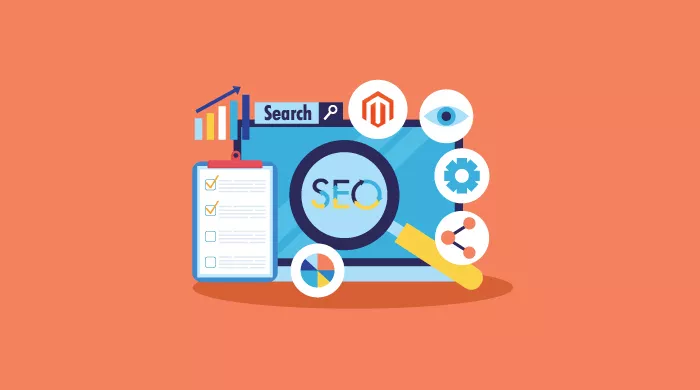Top 8 Shopify Alternatives to Start Your E-commerce Business
When it comes to all-inclusive e-commerce platforms, Shopify comes first. Shopify is considered as one of the best options for an e-commerce business. Since e-commerce is a hugely diverse market and continuously expanding, it is not possible for one software to provide all the solutions for every e-commerce business.
Fortunately, several providers fill the gaps that giants like Shopify have left. In this article, check out some of the best Shopify alternatives that possess better features, cost, and functionalities.
1. BigCommerce
Similar to Shopify, BigCommerce is capable of supporting and creating massive online stores. It enables users to access 600 product variants. While Shopify offers more features, there are three areas where BigCommerce shines.
The first is payment processing. Shopify charges a transaction fee for using a payment processor other than Shopify Payments. These charges are between 0.5% to 2% depending on your plan. On the other hand, BigCommerce does not charge a transaction fee when you work with a third-party payment processor. In addition, if you use PayPal, you can get discounted credit card processing rates.
Secondly, SecoMerchants on BigCommerce can apply a credit to a customer’s account towards future purchases. It allows order editing and customer credit functionality, which is missing in Shopify.
Third is user-friendliness. Both platforms are easy to use, but based on user reviews, BigCommerce seems more intuitive.
2. WooCommerce
An open-source e-commerce plug-in, WooCommerce, is built for WordPress. It allows users to leverage the most powerful content management system (CMS) and is used to run an online store. Since it possesses open-source nature, being a user, you can customize every aspect of your store and easily build custom extensions. The decision to choose between WooCommerce and Shopify depends on your needs and skill level.
The major advantage of WooCommerce is the cost. Apart from hosting and security cost, you can call it the “free Shopify alternative”. Moreover, you have full control over your website, and you can customize as per your requirements without spending extra money.
3. PinnacleCart
PinnacleCart is a customized online shopping cart, which is easy to set up and use. It allows users to customize an online store, manage product catalogs, create marketing campaigns, and collect web analytics. It also caters to international customers since it supports multilingual and currencies. It also offers free migration from over 40 different shopping carts as well as design and SEO services.
It also provides a robust backend that allows custom design webshops, managing product catalogs, creating marketing campaigns, and collecting web analytics.
You should choose PinnacleCart if the following things are important for you:
- If you want unlimited admin accounts.
- Don’t want to spend extra transaction fees.
- You want to host the store externally.
4. Squarespace
Squarespace is known for the design of its templates for business-specific purposes. It allows its customers to highlight their wares via a library of curated and professional themes.
It is an excellent choice for small stores. If you are looking for features like custom notifications, taxes, shipping integrations, etc., Squarespace is a perfect choice. Here are some unique features embraced by Squarespace, which makes it stand out from Shopify:
- Page Editors:Squarespace lets users drag content blocks and drop them into columns as it has a visual drag-and-drop page editor. Squarespace has a better page editor as it allows users to create forms, maps, restaurant menu, buttons, audio players, photo galleries, charts, and a bunch more.
- Template Customization:Squarespace embraces the best theme customization tool of any website builder over Shopify. You, as a user, can easily apply your own brand colors and fonts by using Squarespace. In simple terms, we can say that Squarespace has put a lot into template customization that makes sense.
5. Volusion
This Austin based company is one of the oldest in the e-commerce market, founded in 1999. It’s one of the top Shopify alternatives serving over 200,000 businesses.
Following are the areas which make Volusion a good choice:
- Payment Processing: Included in all its plans, it offers payments with Stripe, PayPal, and their own Volusion payments. Unlike Shopify, it doesn’t charge transaction fees with any 3rd-party payment systems.
- Features and Expertise: Having two decades of experience in the e-commerce segment, Volusion offers a rich set of features including a homepage slideshow, rich content editor, shipping options, secure checkout, recurring payments, customer relationship management (CRM), and more.
6. Magento
Since Magento is an open-source platform, it’s free to download and fully customizable. Unlike Shopify, it’s not easy to set up your e-commerce store as it requires programming skills. In addition, you will require development resources.
You should choose Magento over Shopify if you want more built-in features than Shopify provides. For example:
- If your core business model requires end-to-end control and configuration of your e-commerce workflow.
- Managing a warehouse with lots of inventory and SKUs requires an advanced shipping fulfillment process (inventory management, purchase orders, dropshipping, etc.)
- If you want to keep most (if not all) functionality in-house without requiring third party systems or subscriptions.
7. Wix
Wix is a website builder having a drag-and-drop editor that allows users to create a professional website without knowing a line of code. With hundreds of templates and tools, Wix enables users to build and sell through a user's website. When it comes to comparing Wix and Shopify, Wix provides beginner-friendly e-commerce features geared towards small online stores. On the other hand, Shopify is suitable for much larger stores only as it’s built to manage thousands of store items easily. The business plan of Wix starts at $23 per month, whereas Shopify Basic starts at $26 per month.
You should choose Wix over Shopify for the following criteria or requirements:
- If you have limited items and have a low volume business.
- You don’t want to spend much time and money and still want a beautiful e-commerce website.
8. BigCartel
Big Cartel is the only e-commerce platform that provides free setup of an online store for up to 5 products. BigCartel has gained traction among artists due to its affordability, unlimited bandwidth, inventory tracking, HTML and CSS customization, and essential features.
Since Bigcartel focuses on artists and creators to sell their art-work, it’s best suitable for such individuals. And, for that reason, it’s cost-effective compared to Shopify. One of the best features of BigCartel is that it comes integrated with Google Analytics, Facebook, and PayPal without having to do any coding. In addition, it doesn’t charge any transaction fees.
Final Thoughts
Choosing the right e-commerce platform is one of the crucial decisions you need to make while starting your online business. Choosing the right e-commerce platform depends on your business’ needs, budget, skills, and resources.
In this blog, we have mentioned the best offering of Shopify alternatives, which will help you choose the right platform. If you are looking for the best eCommerce solution for your project, you can rely on the top eCommerce development companies in selecting the right platform based on your requirements.








